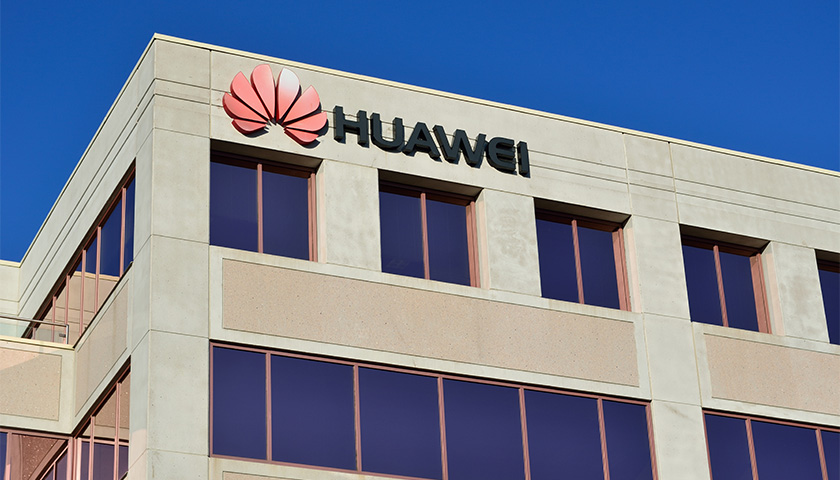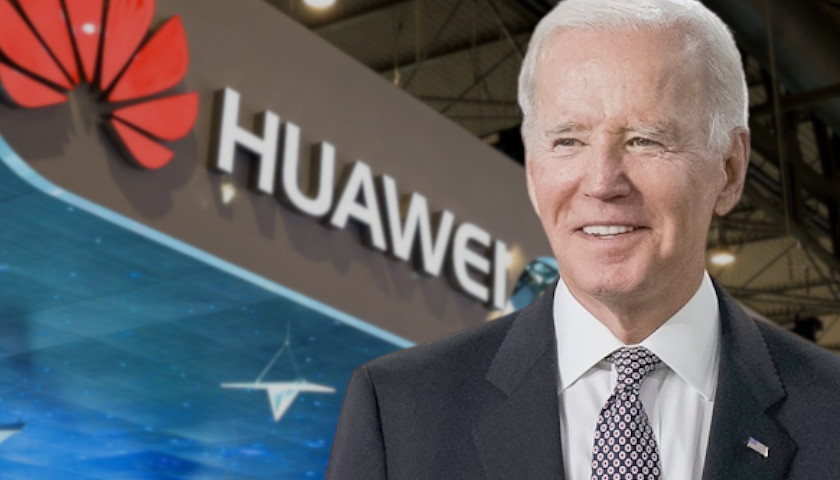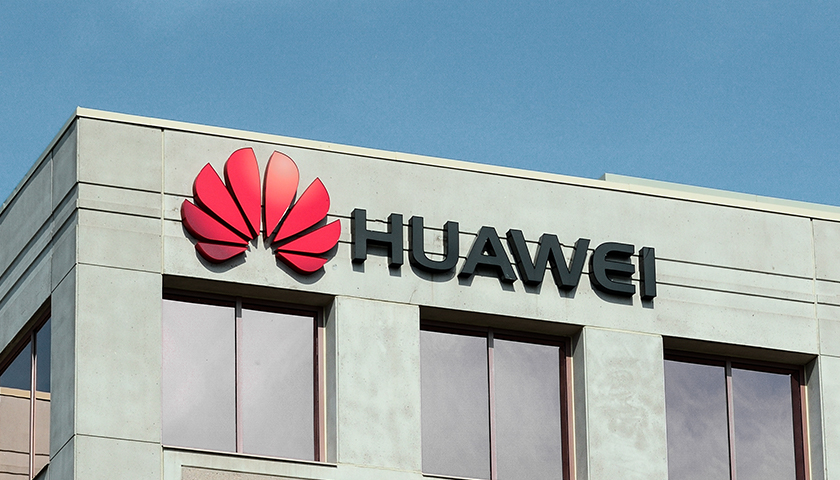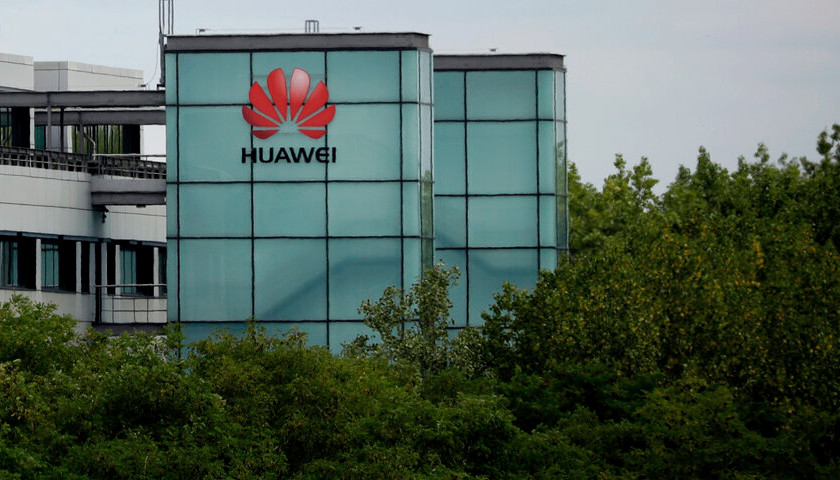by J.V. Caro China’s infiltration into agricultural IoT (Internet of Things) networks represents a critical yet underexplored dimension of its global technological strategy. Through key players such as Huawei and Alibaba Cloud, Beijing has embedded IoT technologies into agricultural systems in Latin America, Africa, and Asia. These initiatives, often…
Read MoreTag: Huawei
U.S. Bans Chinese Tech That Allegedly Lets China Spy on Military Sites
The Federal Communications Commission (FCC) on Friday announced a ban on new imports of Chinese-owned telecommunications equipment, including the equipment suspected of surveilling sensitive U.S. military sites.
The new rules, prohibiting U.S. sales and imports of equipment from companies including Huawei and ZTE, are the first to be implemented on the grounds they pose “unacceptable risk to national security,” FCC Commissioner Brendan Carr said Friday. U.S. authorities have expressed concerns that Beijing could exploit the companies’ telecommunications installations across the country to collect data from U.S. sites, including nuclear and military sites in the U.S.
Read MoreBiden Admin to Bar Chinese Telecom Giants from U.S. Market
The Federal Communications Commission (FCC) plans to ban telecommunication devices and video surveillance equipment from five Chinese companies in a recent move to address national security concerns, according to Axios.
The proposed FCC ban blocks Huawei, ZTE, Hytera Communications Corporation, Hikvision and Dahua Technology Company on national security grounds, marking the first time the FCC has attempted to implement an electronics ban on that basis, Axios reported. The proposed ban follows an Oct. 5 draft order circulated by FCC Chairwoman Jessica Rosenworcel that, if approved through a vote, will effectively block all equipment sales by firms that pose a threat to the U.S., according to Axios.
Read MoreReport: U.S. Investigates Blacklisted Chinese Tech Giant over Concerns It May Be Spying on Missile Silos
The U.S. is investigating Chinese telecommunications firm Huawei for potential surveillance capabilities at cell towers near U.S. military bases and missile silos, according to Reuters.
Authorities are concerned that China could exploit Huawei communications equipment in the U.S. to gather sensitive data on military procedures and personnel, Reuters reported Thursday. The Commerce Department reportedly opened the investigation in 2021.
Read MoreTony Podesta Has Now Earned $1 Million Lobbying Biden White House for Blacklisted Chinese Tech Giant
Democratic lobbyist Tony Podesta has earned at least $1 million to lobby the White House on behalf of Huawei, a Chinese technology and telecommunications company blacklisted under the Trump administration.
Podesta, brother of Hillary Clinton’s 2016 presidential campaign chairman John Podesta, received $500,000 from Huawei to lobby the Executive Office of the President between October and December of 2021, according to lobbying disclosures filed late Thursday. Huawei first hired Podesta in July 2021 and paid the long-time Democrat operative $500,000 to lobby the White House from July to September 2021.
Podesta lobbied on “issues related to telecommunication services and impacted trade issues,” according to disclosure forms.
Read MoreCommentary: The U.S. Might Lose the Tech War in Its Own Hemisphere
South America has sat within the U.S. sphere of interest since the Monroe Doctrine was enunciated in 1823. Now that may be changing, thanks to the inroads that Chinese telecom companies such as Huawei are making in the region’s economies. The advent of 5G networks is showcasing Beijing’s growing ability to rival Washington in South America.
That rivalry isn’t discussed too much in the region itself. Governments in Latin America mostly take a pragmatic approach, waiting for the lowest bidder while trying to remain as friendly as possible with each side. These tendencies hold true for most facets of U.S.-China competition in Latin America, but especially in South America, which is home to several major economies that are more politically and economically independent from the United States than closer neighbors such as Mexico.
Read MoreU.S. Government Allegedly Approves Sale of Electronic Chips to Huawei
The United States government has allegedly approved the sale of hundreds of millions of dollars worth of electronic chips to Chinese technology giant Huawei, in a massive reversal of a Trump-era policy by the Biden Administration, as reported by the Daily Caller.
The report was first made by Reuters on Wednesday, which cited two anonymous sources who claimed to be familiar with the deal. Huawei intends to use the new supply of chips to construct more automatic components of automobiles, including video monitors and motion sensors. Huawei allegedly asked the suppliers to raise the value of chips from hundreds of millions to at least one billion for the next sale after the four-year licensing agreement expires.
Read MoreHuawei Employee Allegedly Wrote MIT Professor’s Pro-China Editorial
A Huawei employee allegedly ghostwrote an op-ed on behalf of a Massachusetts Institute of Technology professor, who defended Huawei’s ties with American universities, according to a report from the Washington Free Beacon.
In 2019, Nicholas Negroponte — the co-founder of the MIT Media Lab — wrote a defense of the Chinese company’s partnership with MIT and other post-secondary institutions. He argued that the United States “should collaborate with leading technology companies and their research labs, rather than banning them.”
Read MoreUK Backtracks on Giving Huawei Role in High-Speed Network
Britain on Tuesday backtracked on plans to give Chinese telecommunications company Huawei a role in the U.K.’s new high-speed mobile phone network amid security concerns fueled by rising tensions between Beijing and Western powers.
Britain said it decided to prohibit Huawei from working on the so-called 5G system after U.S. sanctions made it impossible to ensure the security of equipment made by the Chinese company.
Read More







